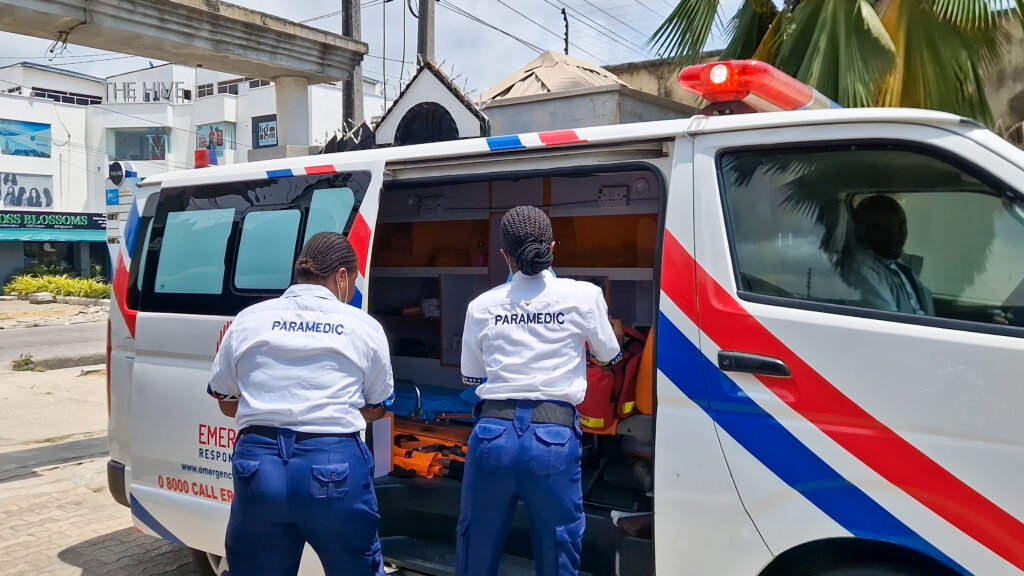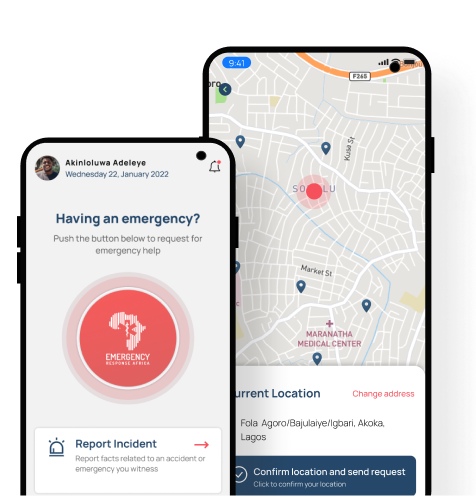Kogi State faces ongoing challenges when it comes to accessing timely and reliable emergency medical care. From road accidents on its major highways to medical emergencies in rural communities, the demand for functional ambulance services is high but the supply remains limited.
Unlike some other states with more structured emergency medical systems, Kogi is still in the early stages of developing a coordinated ambulance response network. Most residents rely on a mix of hospital-based ambulances, private providers, and informal transport arrangements during health emergencies. This often leads to delays in care and avoidable loss of life.
Fortunately, new efforts are being made to close this gap. In this article, we outline the different ways residents can access ambulance services in Kogi, what options are currently available, and practical steps to take when facing a medical emergency.
Emergency Response Africa (ERA): Fast, Reliable Help in Kogi
Emergency Response Africa (ERA) is Nigeria’s leading tech-enabled ambulance service provider, offering lifesaving emergency medical support across multiple states, including Kogi.
ERA is bridging the long-standing gap in pre-hospital emergency care by combining trained responders, modern ambulances, and real-time technology to ensure prompt response across major towns such as Lokoja and nearby communities. Whether it’s a road traffic accident, childbirth emergency, or a sudden collapse at home, ERA is available around the clock to help.
Residents can reach ERA via a toll-free number (08000-2255-372) or through its easy-to-use mobile app. Once activated, the system automatically connects the caller to the nearest ambulance and trained personnel, ensuring a coordinated response in minutes.
What makes ERA different is not just its speed but its strategy. Beyond day-to-day ambulance support, ERA works with government agencies, schools, hospitals, estates, and corporations to build customized emergency medical response plans, including responder training, dispatch setup, and EMS protocols tailored to their environment.
Services Offered:
- 24/7 emergency and non-emergency ambulance dispatch
- Toll-free emergency access via 08000-2255-372
- Mobile app-enabled request and GPS tracking of ambulances
- On-site stabilization by trained EMTs and paramedics
- Inter-hospital transfers within Kogi and to Abuja or surrounding states
- Development of customized EMS frameworks for organizations and communities
- First aid training and response planning for schools, estates, and religious centers
Public‑Sector Emergency Services in Kogi
Kogi State’s government has made strides to improve pre-hospital care, but coverage remains uneven. In 2023, the state procured 21 new Basic Life Support (BLS) ambulances, equipped with oxygen systems, suction units, intercoms, and emergency drug boxes for distribution to rural hospitals.
These units are deployed via the Kogi State Ministry of Health to general hospitals and clinics in remote areas under the “Bello Healthcare Plus” initiative. You can reach the Kogi government ambulance services via the 112 national emergency number.
During road accidents, the Federal Road Safety Corps (FRSC) and National Emergency Management Agency (NEMA) assist in rescue and transport efforts.
Other Ambulance Options in Kogi (Private or Hospital-Based)
Beyond ERA and public-sector emergency options, a few hospitals in Kogi State operate ambulance services, though their accessibility varies.
Grimard Catholic Hospital in Anyigba operates a 24/7 emergency unit supported by ambulance services, delivering comprehensive trauma and medical care to patients. The facility is staffed around the clock and equipped to respond to emergencies, though services are typically reserved for admitted patients or those referred to the hospital.
Similarly, CareCrest Maternity Hospital in Lokoja offers ambulance dispatch for obstetric emergencies, but their service is mostly available to registered patients and requires advance booking.
4 Steps to Take During a Medical Emergency
Medical emergencies don’t wait for perfect systems, they demand immediate action. Here are essential steps to follow if you or someone near you faces a health crisis:
1. Call a Verified Ambulance Provider Immediately
Time is critical. The first step should always be to contact a trusted provider like Emergency Response Africa (ERA) via their toll-free number 08000-2255-372. They provide 24/7 ambulance dispatch, real-time tracking, and professional medical support on arrival.
2. Stay Calm and Provide Clear Information
When speaking with emergency personnel, be specific:
- Your exact location (include landmarks or major roads)
- Nature of the emergency (accident, unconsciousness, bleeding, etc.)
- Number of people involved
- Any known health conditions or allergies
3. Provide Basic First Aid If Trained
If you have first aid knowledge:
- Control bleeding with a clean cloth
- Place the person on their side if they’re unconscious but breathing
- Begin CPR if they are not breathing and you’re trained to do so
If untrained, do not attempt complex interventions, just stay with the person and keep them calm.
4. Avoid Using Private Vehicles Unless Necessary
Prepare for the ambulance’s arrival. Unless an ambulance is entirely unavailable, avoid transporting critically ill or injured patients yourself. Lack of medical equipment and trained personnel in private vehicles can worsen the situation.
Final Thoughts
Access to emergency care shouldn’t depend on where you live, yet in states like Kogi, reliable ambulance services remain limited. That’s why awareness, preparation, and knowing your options matter. Whether you’re a parent, a teacher, or a business owner, having a plan for medical emergencies is essential.
Emergency Response Africa (ERA) is helping bridge the gap with tech-driven solutions and customizable EMS programs for communities, institutions, and businesses. Until public systems fully evolve, these partnerships remain a lifeline.
Emergencies are unpredictable, but your response doesn’t have to be. Email contact@emergencyresponseafrica.com or save ERA’s toll-free line (08000-2255-372) and take a proactive step toward protecting yourself and those around you.
FAQs About Ambulance Services in Kogi State
What Ambulance Services Are Available in Kogi State?
Kogi has a mix of public, hospital-based, and private ambulance services. Emergency Response Africa (ERA) is the most reliable private option, while public services include a limited number of ambulances supported by the state Ministry of Health and collaborations with FRSC or NEMA.
How Can I Contact Emergency Response Africa (ERA) in Kogi?
You can reach ERA toll-free by dialing 08000-2255-372. You can also download the ERA mobile app or access their services through some HMO and employer healthcare plans.
Are Ambulance Services Available in Rural Parts of Kogi?
Access in rural areas is limited. While ERA can serve both urban and rural communities, government and hospital-based services may not cover hard-to-reach regions. It’s advisable to confirm with your preferred option if service is available in your specific location.
Can I Book an Ambulance in Advance for Non-Emergencies in Kogi?
Yes. ERA allows booking for planned medical transport, hospital discharges, or medical appointments. This can be done through the ERA app, website, or by calling the toll-free number.
What Should I Do If There’s No Ambulance Nearby?
If ambulance services are delayed or unavailable, prioritize basic first aid and get the patient to the nearest healthcare facility safely. Avoid moving severely injured individuals unless absolutely necessary. Call 08000-2255-372 or 112 to initiate help first, you’ll be guided through the necessary steps to take.
What Information Should I Provide When Calling For An Ambulance?
Be prepared to provide your name, phone number, exact location (including landmarks), the patient’s condition, and any known medical history. Stay on the line for instructions and updates.



